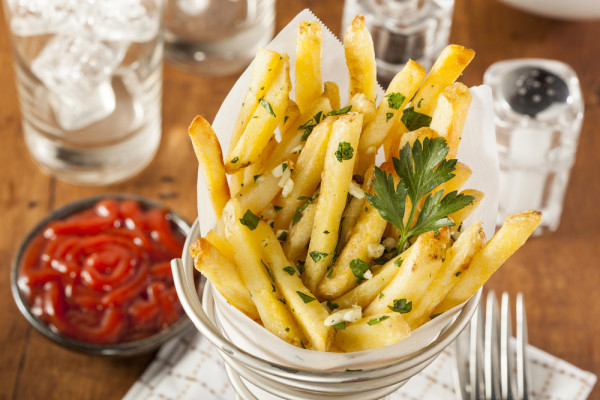By Team Best Life
Cake. Cookies. Candy. French fries. What’s your Achilles heel when it comes to foods that taste good, but aren’t very good for you? Is it difficult to resist the temptation? Do you find that you always overdo it when you’re around these foods? Where’s that willpower when you need it? We’ve got the fix! It’s a new technique known as “episodic future thinking.”
Here’s how it works: Imagine events that you’re looking forward to that are happening at different points in the future: tomorrow and two days, a week, two weeks, six months, and two years from now. Describe the events that you’re picturing in detail—what you are wearing; what you see, hear, and do; and how you feel. Commit this to memory. You can call to mind these images whenever you’re faced with your trigger food(s) or even make a recording of yourself describing these events and play the tape back before you head out to a party.
How effective is this trick? Researchers from the University of Buffalo found the technique to be extremely helpful. In their study, two groups of overweight and obese women were presented with an unlimited buffet of high-calorie foods—like French fries, garlic bread, cookies and more. Before eating anything, the women rated each food on how appealing it was.
Then, researchers asked one group of women to use episodic future thinking while the control group read an excerpt from a travel blog. Both groups were allowed to eat as much as they wanted; during this time, the visualization group listened to a recording of themselves describing those future events. The visualization group ate 28 percent less than the other group, or about 305 fewer calories.
Whenever you find yourself tempted by Friday-night pizza or Saturday-morning doughnuts, try some visualization. Episodic future thinking may be just the trick to help you shed those extra pounds.
Also Read:

